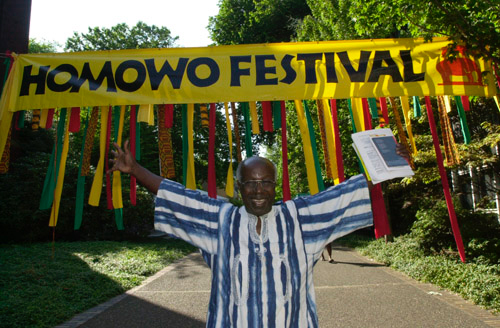Warning, this event was expired!
Date: August/September (date varies based on the traditional calendar)
Homowo Festival is a traditional and significant cultural event celebrated by the Ga people in the Greater Accra Region of Ghana. It is one of the most prominent festivals in the country and holds deep historical and cultural importance to the Ga community. Homowo, which translates to “hooting at hunger” or “making fun of hunger,” is a harvest festival celebrated to mark the end of the rainy season and the beginning of the harvest season.
Key Features of the Homowo Festival:
- Historical Origin: The origin of the Homowo Festival can be traced back to the Ga people’s migration and settlement in the Accra region. According to legend, during their migration, the Ga faced a severe famine. To survive, they cultivated the land and engaged in traditional agricultural practices. When the harvest season finally arrived, they celebrated with joy and thanksgiving, commemorating their victory over hunger and adversity.
- Sowing and Harvesting Rituals: The festival begins with the “Nmaa Daa” ceremony, which involves the ritual sowing of maize and other crops in the Ga communities. This marks the commencement of the planting season. Months later, after the crops have grown and are ready for harvest, the festival reaches its peak with the “Kpa” ceremony. The first crop is harvested, and offerings of food and drinks are made to the gods and ancestors, expressing gratitude for the bountiful harvest.
- Ritual Cleansing and Traditional Chants: Before the festival’s main events, the Ga people perform rituals to purify themselves and their communities. The cleansing ceremonies are believed to ward off evil spirits and ensure a successful and peaceful celebration. During the festival, traditional priests and priestesses lead the people in singing and chanting of ancient Ga songs and prayers.
- Kpashimo: One of the most distinctive aspects of the Homowo Festival is the “Kpashimo” or “The Lifting of the Ban.” Prior to the festival, a ban is placed on noise-making and drumming to show respect for the gods. On the day of Kpashimo, the ban is lifted, and the air is filled with music, dancing, drumming, and revelry.
- The “Hooting” Ceremony: During the climax of the Homowo Festival, the “hooting” or “making fun of hunger” takes place. People dress in traditional and elaborate outfits and move through the streets, making loud hooting sounds to signify the end of the hunger season and the abundance of the harvest season.
- Family Reunions: The Homowo Festival serves as a time for Ga families to come together and reunite. Many Ga people who live outside the region or abroad use this occasion to return to their hometowns and celebrate with their families and community members.
- Communal Feasting: Food plays a central role in the Homowo Festival. After the harvest, families and communities prepare special dishes, with the traditional “Kpokpoi” being a staple dish made from maize, palm nut soup, and fish or meat. Sharing food and communal feasting are essential elements of the festival, promoting unity and solidarity among the Ga people.
The Homowo Festival is not only a time of celebration but also an opportunity for the Ga community to preserve and showcase their cultural heritage. It reinforces a sense of identity and belonging among the people while fostering community spirit and respect for their ancestors and traditions. The festival’s vibrant colors, music, dance, and rituals make it a captivating and enriching cultural experience for locals and visitors alike.

